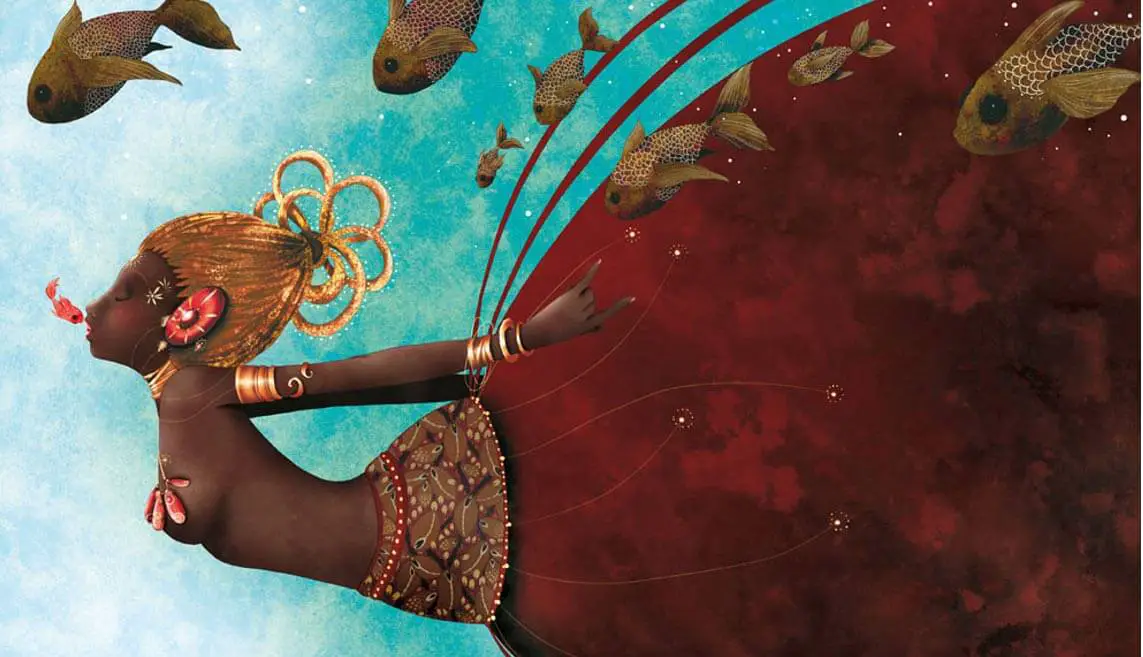Many cultures and religions across the world believe in different mythological earth deities.
An intriguing fact is that despite holding the same rank as ‘earth gods and goddesses,’ these beings differ in the purposes they serve within their respective communities.
Their roles are influenced by their unique backgrounds and the circumstances under which they came into existence.
For example, an earth deity from a desert or dry region might possess a different personality compared to an earth deity from an evergreen region.
Most earth deities also tie to families or spouses who are also gods.
Even though most mythological earth deities are goddesses, there are a few male gods with the same rank.
The following are the famous earth deities from African mythology.
- Ala
- Asase Ya
- Babalu Aye
- Geb
- Kitaka
- Nzambici
- Odudua
- Sagbata
1. Ala
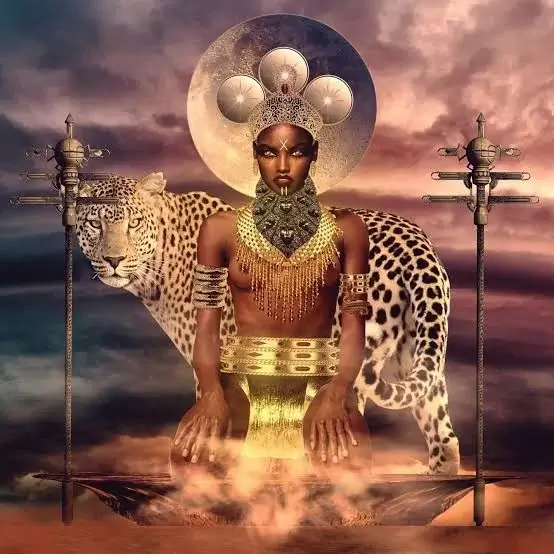
Ala is the Igbo goddess of the earth, morality, fertility, and creativity.
According to Igbo religious beliefs, Ala is the ruler of the underground. Her status is indicated by the meaning of her name, ‘ground.’
Ala’s husband, Amadioha, is the god of the sky. It is no wonder her believers refer to her as the ground itself.
It is considered an abomination to Ala whenever someone commits a serious sin in the community.
People of Igbo believe that Ala can swallow a person into the underground.
2. Asase Ya
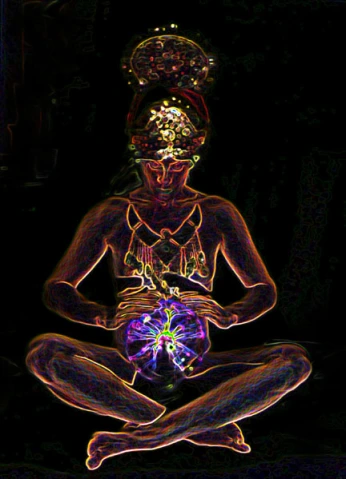
Also known as Asase Afua and Asase Yaa, she is the Ashanti goddess of fertility.
Asase Ya’s husband, Nyame, is the sky god, whom the people of Ghana believe created the sky.
She is one of the most powerful deities of the Ashanti people and is worshipped in open fields.
Asase Ya’s symbol is the planet Jupiter. She bore three children, Bia, Tano, and Anansi, the trickster.
3. Babalu Aye
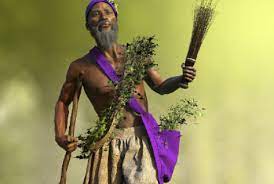
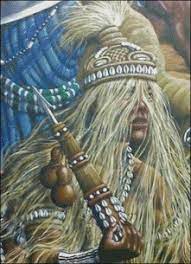
He is the Yoruba orisha of the Earth. Babalu Aye is known as Obaluaye, Oluaye, Sopona, and Obaluaiye.
The name Babalu Aye means “Father, Lord of the Earth.” That shows his power and authority over earthly things, which include the body, physical possessions, and wealth.
Babalu Aye also has the power to cure infectious diseases and inflict smallpox on people.
4. Geb
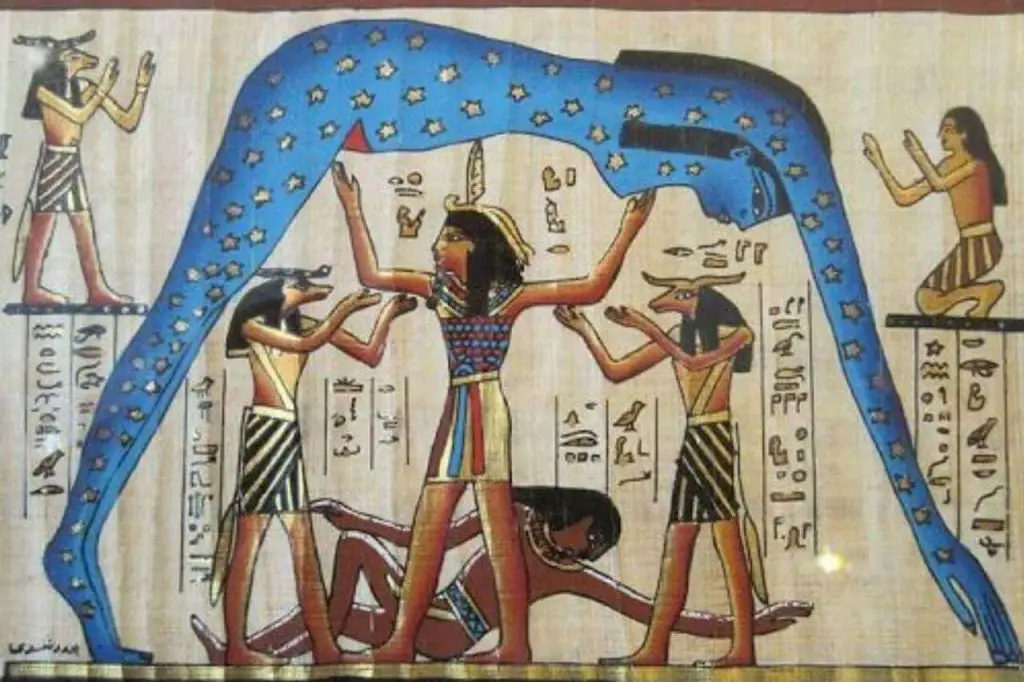
Geb is the Egyptian earth god. He is the son of Shu, the god of peace, lions, air, and wind, and Tefnut, the god of moisture, moist air, dew, and rain.
He is the brother and consort of Nut, goddess of the sky.
Geb is associated with vegetation (he allows crops to grow), healing, and occasionally the underworld and royalty.
He is also considered the father of snakes, and his laughter is believed to create earthquakes.
5. Kitaka
Not much is known of Kitaka, only that she is the Baganda earth goddess.
Her history, origin, the power she holds, and even her rank among the Baganda deities remain unknown.
However, the people of Baganda hold her with high respect, evident in their naming of newborn baby girls Kitaka.
Over the years, brands and artifacts bearing the name Kitaka have increasingly been introduced in the market.
6. Nzambici
According to the Bakongo religion, Nzambici is the god of essence, representing earth, the moon, and the sky, and is also revered as the mother of all animals.
Early in the 17th century, she was regarded as one of the weak spirits that surrounded Nzambi Mpungu, the Kongo creator god.
They both existed as one, but later when Nzambici stole Nzambi Mpungu’s fire, he created the earth and sent her there.
He later joined Nzambici on earth, where together they created the waters, dry land, and animals.
That is why the Kongo people call her “the god on earth, the great princess, the mother of all the animals”.
7. Odudua
Often confused with Oduduwa, the creator deity of the Yoruba religion, Odudua is the black goddess of the earth.
She is known to promote love and life but can also fill in the role of a war goddess when required.
Odudua is the primordial sister of Olurun, the supreme sky god. Together they have formed an Earth-Sky bond.
Odudua holds the power to the whole essence of life.
8. Sagbata
Also known as Sakpata, Sagpata is regarded as the earth god by the Fon people of Benin and Togo.
He is the son of Mawu goddess, creator of the universe.
Sagbata and his brother, Sogbo, were intended to rule the universe together.
However, because of their different personalities, they divided the kingdom into upper Calabash (the sky) and lower Calabash (the earth).
Together, both their kingdoms would fit into one whole symbolic Calabash.
Others
There are other infamous African earth deities, including Meder (Ethiopean earth god) and Ratovantany (Malagasy earth deity).
Though each of the earth deities had different powers, they all held a strong connection to the ground.
Their believers regarded the ground as holy, paying obeisance to it and making sacrifices to please their gods and goddesses.
You may also want to check:
9 Most Important African Gods of Healing

